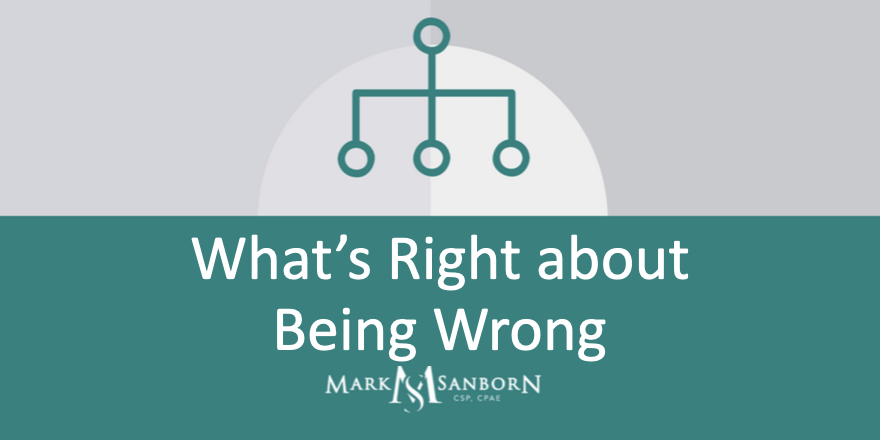Nobody enjoys being wrong, but there are worse things.
For instance:
Being wrong and not knowing it (while everyone else does).
Being wrong and being unable to admit it.
Being wrong and not understanding why you are wrong.
Being wrong and not benefiting from the insights of others.
But there are several good things about being wrong if you are willing to admit it.
First, It means you are reasonable. My wife Darla has an uncanny intuition and is not only smart but also has great insights into people. There have been (too) many times when I disagreed with her assessment of someone only to learn she was spot on. I could defend my indefensible conclusion, or admit not just to myself but to her that I was wrong. Unreasonable people never admit they were wrong, or that they were responsible for an outcome.
Second, it means you are open. The only way that you can discover you are wrong is to be open to the possibility. Too much certainty can be a bad thing if it keeps you from considering new evidence or insights. If you are too in love with your ideas, you’ll never re-examine them for validity. A good and true idea can withstand scrutiny.
Third, it means you can learn. As cliche as it sounds, the older you get the more you realize what you don’t know. The good news is that wisdom can come with age (it isn’t guaranteed) but knowing it all never happens. The older I become, the less certain I become of the less important ideas I once held. And even a few cherished ideas have not withstood the test of time.
Fourth, it means you can relate. Imperfect people don’t trust perfect people, probably because they only exist in the imagination. Whether or not admitted, we are all imperfect beings searching for true insights and ideas. By accepting that you might be wrong, you admit that you are not above the fray.
Fifth, it means you are human. It is the human condition to be wrong, yet it threatens many. A healthy self-esteem isn’t threatened by sometimes being wrong. It is reflected by being open (see the second benefit above).
None of these benefits are reasons to be sloppy in your thinking or execution. But when–despite your best efforts–you find you are wrong, revisit the good things that can come from it.
Mark Sanborn is an award winning speaker and Leadership Expert in Residence at High Point University, the Premier Life Skills University. For more information about his work, visit www.marksanborn.com.








